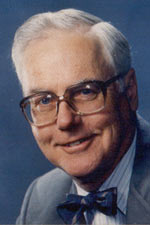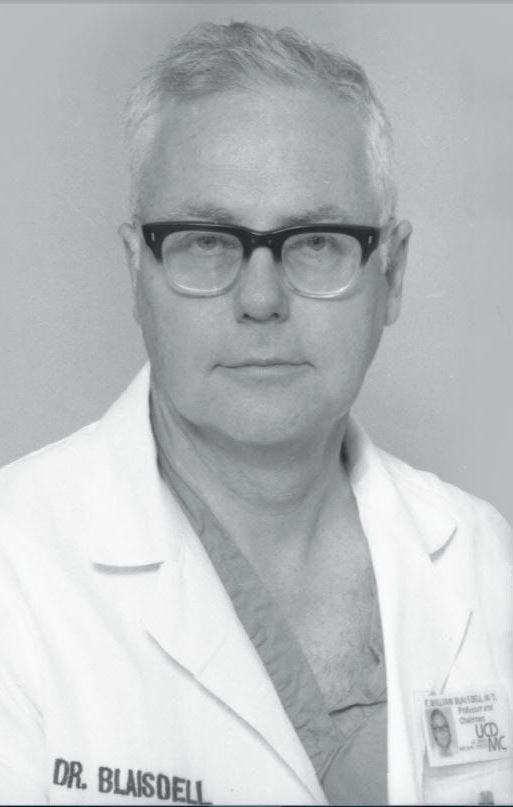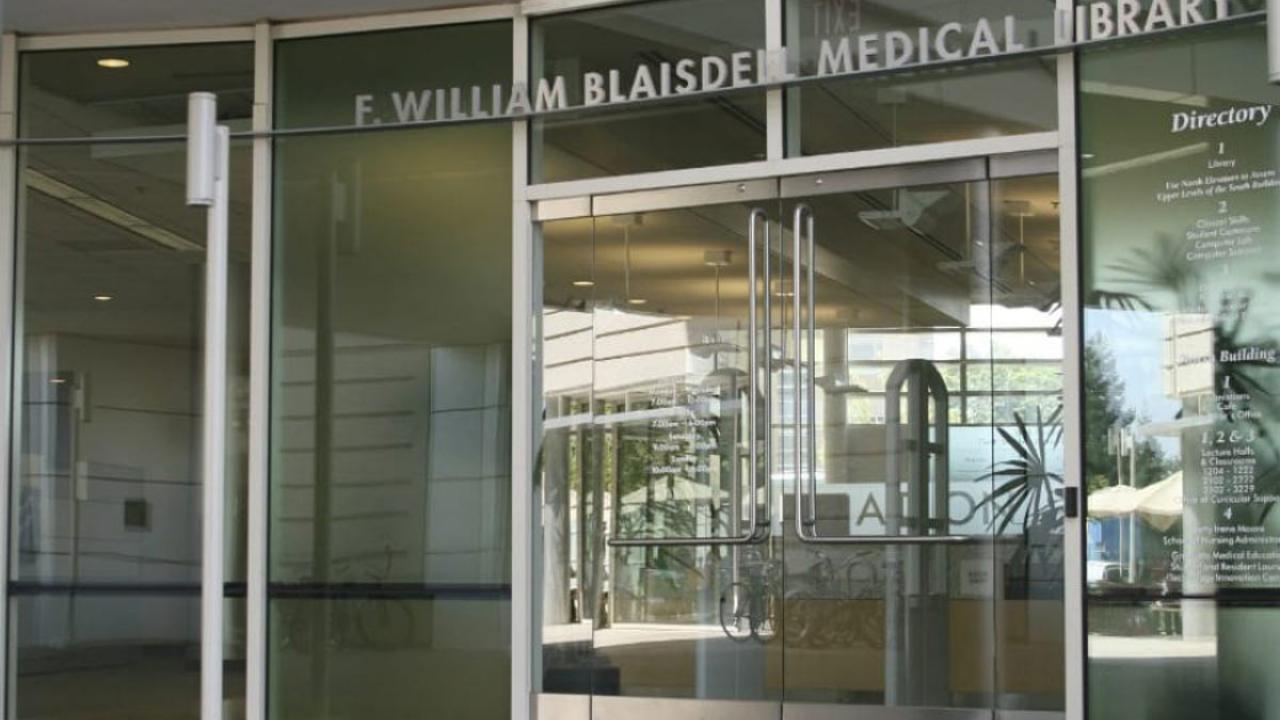Quick Summary
- Established the nation’s first dedicated, 24/7 trauma program at SF General, then did the same at UC Davis
- Set new standards that improved wound and fracture treatment and reduced post-surgical complications
- He donated Civil War medical artifacts to the UC Davis library named in his honor
F. William Blaisdell, a surgeon whose legacy at the UC Davis Medical Center includes building a trauma program that today remains the only one in the region with Level I certification, the highest possible, died April 18 of natural causes at the age of 92.
He was widely considered the founder of trauma care as a surgical specialty. He established the nation’s first dedicated, 24-hour-a-day, seven-day-a-week trauma program at San Francisco General Hospital before doing the same at UC Davis Medical Center, where he served as chair of the Department of Surgery from 1978 to 1995, including its formative years.
He was an innovative and dedicated educator, as well, so much so that the health sciences library on the Sacramento campus was named after him. The F. William Blaisdell, M.D., Medical Library, besides medical texts and journals, also houses Civil War medical artifacts donated by Blaisdell. Read about his interest in the Civil War, below.

Blaisdell was board certified in general, thoracic, vascular and critical care surgery, and published hundreds of research papers, books and book chapters. In addition to his time at UC Davis and San Francisco General, Blaisdell had held surgery leadership positions for the Veterans Administration in San Francisco and Sacramento.
Under his direction, the UC Davis Department of Surgery became nationally recognized for innovative treatment approaches and research productivity. He launched a unique surgical education program to train military and civilian surgical residents side by side. He advanced principles of post-surgical treatment that revolutionized patient care nationwide. He also diversified the field of surgery by welcoming, training and advancing women.
“Our field has lost one of its leading spirits and minds who was known as much for his warmth as he was for his expertise,” said Diana Farmer, ptofessor and chair, Department of Surgery. “One of the reasons I wanted to lead the surgical team at UC Davis was because of the program Dr. Blaisdell started here, the incredible doctors he trained and inspired, and his focus on putting patients before all else.”
Blaisdell was born in 1927 in Santa Barbara and raised in Watsonville (Santa Cruz County). He earned bachelor’s and medical degrees from Stanford University, where his grandfather, father and an uncle earned medical degrees as well.
The control of bleeding

His training included two years of service as a Navy medical officer in the Korean War and a fellowship in cardiovascular surgery at Baylor University, where he worked with world-renowned heart surgeon Michael DeBakey. These experiences gave him expertise in the control of bleeding, key in trauma care, and inspired him to advance trauma as a unique surgical specialty. He did so to fill the growing need to treat injuries due to accidents, gun shots, riots and substance use that became more common in the mid-1960s when he started at San Francisco General.
Blaisdell set new standards in surgery and critical care medicine that improved wound and fracture treatment and reduced post-surgical infection, lung failure and the risk of deep vein thrombosis. He also invented new approaches for cardiac compression, liver and kidney trauma, and bypass procedures.
“We are deeply grateful for Dr. Blaisdell’s vision and lasting legacy,” said Allison Brashear, a neurologist who is dean of the UC Davis School of Medicine. “His passion for training world-class doctors and finding new, innovative ways to save and improve patients’ lives is central to our ongoing mission.”
Blaisdell had served as president of the Society for Vascular Surgery, American Association for the Surgery of Trauma, Michael E. DeBakey International Surgical Society and Uniformed Services Medical School Surgical Society. He had received distinguished service awards from the American College of Surgeons and the state of California, and a Distinguished Alumni Award from Stanford University.
Blaisdell was preceded in death by his wife, Marilyn, and is survived by their six children. No public service is planned. Donations may be made to UC Davis’ Dr. F. William Blaisdell Scholarship.
Civil War interest
Blaisdell has two collections in the UC Davis Library: his research and personal papers, available by request from Archives and Special Collections; and Civil War medical artifacts, which can be viewed by appointment at the Blaisdell Medical Library.
The artifacts include a set of surgical instruments as well as books from that era. A 2002 story in Stanford Medicine Magazine, published by his alma mater, explains his interest in the Civil War:
“Blaisdell remembers sitting on his grandfather’s lap when he was 5 years old and being told the story of his great-grandfather, Solon G. Blaisdell, who was in the 12th New Hampshire Regiment, which fought at Cold Harbor in the spring of 1864.
“‘Son, if it weren’t for this diary, you wouldn’t be here,’ Blaisdell’s grandfather said, holding up the diary that was in Solon Blaisdell’s coat pocket when he was shot at Cold Harbor. The bullet pierced the diary, and, although the force broke some of Solon’s ribs, the bullet did not strike his heart.”
Nicole Capdarest-Arest, head of Blaisdell Medical Library, said, “I had the good fortune to meet Dr. Blaisdell just last month, along with two colleagues. Although we only spent a few hours with him, his formidable intellect, warmth and sense of humor all came through clearly.”
“I was amazed by his breadth of interests and achievements,” she added. “Not only was he a respected leader in his field of trauma surgery, passionate about medical education, beloved by many of his students, and a lifelong Civil War buff, but when we met he was also working on the latest in a series of mystery novels he was self-publishing. He was truly a fountain of knowledge, in medicine, history and so many other domains.”
UC Davis Health’s Karen Finney, senior public information officer, and the UC Davis Library’s Fiona Micoleau, student intern, and Jessica Nusbaum, director of communications and marketing, contributed to this report.
Media Resources
Dateline Staff, 530-752-6556, dateline@ucdavis.edu
